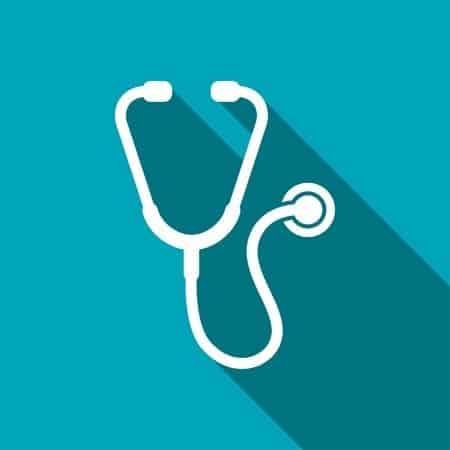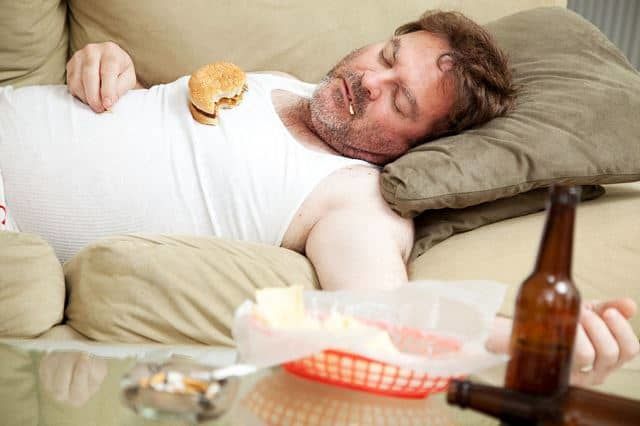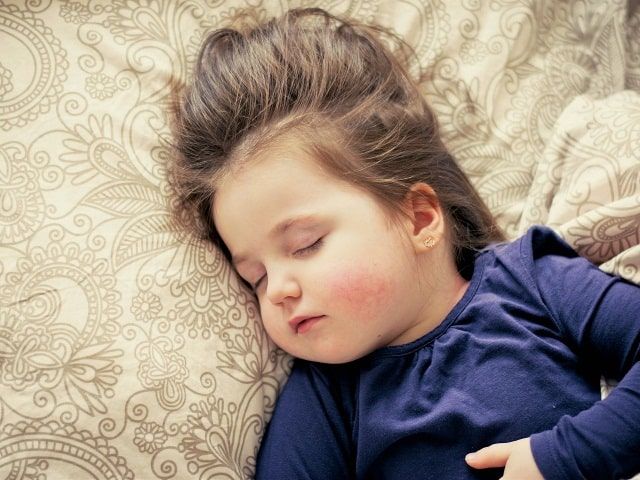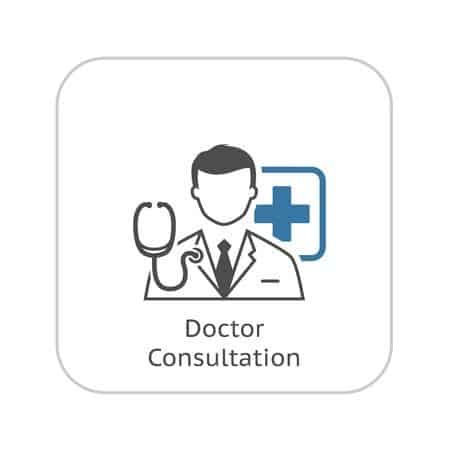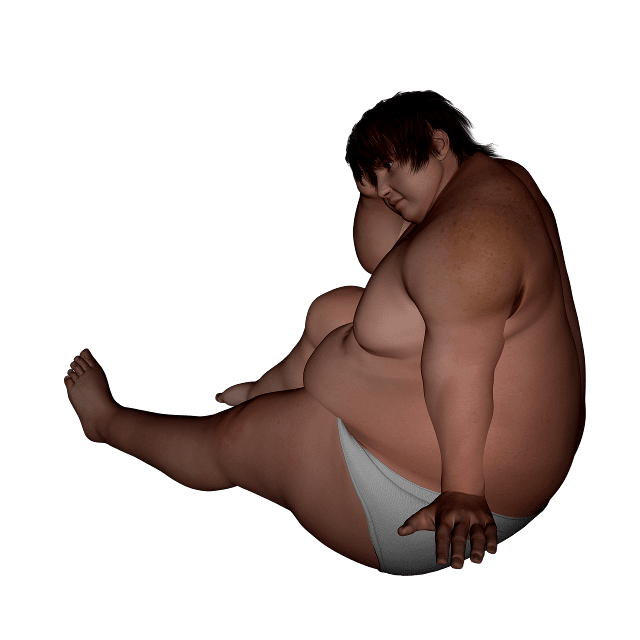Losing sleep can make you irritable, lose concentration and even catch every type of cold and flu. But long term loss of rest can completely change your life and make it difficult to keep up with work or family life.

Sleep Apnea Is More Common Than You Think
Named after a Greek word meaning “want of breath” the awful disorder is a distressing and problematic chronic health problem. It can cause bouts of sleeplessness, anxiety and even lead to further health problems if it is not treated correctly. Anyone of any age can be affected by the issue, but statistics show it occurs most frequently in people aged between 55 and 60 years old. Obstructive sleep apnea affects around six percent of adults and only two percent of children. It is far more common in men than it is in women with twice as many males reporting this breathing problem.
This difficulty affects as many as 18 million Americans which equates to one in every 15 people or just over six percent. On top of this, up to four percent of Americans could be suffering from this disorder but have not been given an official diagnosis. A person who has not had enough rest is more likely to be involved in a traffic accident. The National Highway Traffic Safety Administration says driving while fatigued accounts for 100,000 car accidents, 40,000 injuries and 1,550 deaths every year. And the National Commission of Sleep Disorders Research says 38,000 people die every year as a direct result of heart problems linked to the disturbance in breathing. And, if you’ve ever slept next to a chronic snorer, you will know it isn’t just the person with the sleep disorder that misses out on a peaceful night’s rest. The sudden jolting awake, loud snorting or choking also means that your partner could lose up to an hour of sleep a night.
You might be interested in: Can Exercise Help Your Sleep Apnea?
What are the Symptoms?
There are three types of sleep apnea – obstructive (known as OSA), central (CSA) and a combination of both. The most common form is obstructive and this is why it may suddenly come on as your health or lifestyle changes. It literally means your airway becomes blocked and collapses so air cannot get through. If you were to watch a person with this disorder, you would hear shallow breathing and then long or short pauses in breathing altogether. The pauses can be quite alarming as they are often followed by a cough, snort or choking sound as the sleeping person struggles to begin breathing again.
A common symptom is snoring, the person suffering from apnea may also snore heavily as they fall deeper into sleep. The jolt awake the sufferer feels is accompanied by a racing heart, choking feeling and panic response. This is due to the body trying to shake the person awake and increase oxygen. Central sleep apnea is a lot less common and affects only about one percent of people. You may be suffering from sleep apnea if you find yourself excessively tired during the day, slower reaction times and an inability to focus or “fuzzy” feeling. You may also have a bad memory, feel generally moody and lose energy or motivation. A lot of individuals who suffer from this disorder also deal with bouts of insomnia as the issue progresses and their bodies lose track of its circadian rhythms.
When am I at Risk of Getting this Sleep Disorder?
There are lots of different factors that increase your risk of suffering this disorder. Some of it is unavoidable, such as family history, small jaw bone or even a deviated septum.
However, some things can be avoided and reversing them can actually help you stop sleep apnea. If you are overweight then you are at risk of suffering this type of apnea as well as having a large neck size, allergies, and sinus problems. These problems are exacerbated still further if you are aged over 40. Drinking alcohol or taking sedatives may also cause your muscles to relax and obstruct your airway.
By far the biggest risk of sleep apnea is smoking. Smokers suffer from this problem three times more than people who have never smoked. You won’t feel too happy hearing this, but being middle aged also increases your risk significantly. So while you might be looking forward to some unbroken night’s sleep now your children have grown up, you could find yourself suffering from sleep apnea instead! The obstructive sleep apnea statistics state that people with small airways, or something blocking the upper airways of breathing, would be susceptible to the disorder.
Sleep Apnea in Children
While it seems unusual given the fact we know that this awful disorder gets more common amongst middle age sleepers, children can also suffer from this problem. In their cases, it is more likely to be for a medical reason such as a deviated septum or prominent tonsils.
While the number of tonsillectomies carried out in America has changed and declined since the 1980s, now they are being done more often for sleep problems. 30 years ago, 90% of these procedures were done to prevent recurrent illness and infections such as tonsillitis. Now, it is around 80% for sleep apnea and throat obstruction and only 20% for infections.
Risk factors in children include obesity, medical conditions like Down Syndrome or cerebral palsy and deformities of the jaw or throat. Watching your child when they sleep, picking up on excessive sleepiness during the day or even undergoing a sleep study can help parents diagnose breathing problems. While it can be quite dramatic and upsetting to watch, the issue has no immediate health problems as long as it is treated. If you believe your child is suffering from breathing problems while they sleep then go straight to your pediatrician.
Linking Diabetes to Sleep Apnea
As if not getting enough sleep isn’t bad enough, sleep apnea is also frequently found in diabetic patients. As anyone who has gone without sleep for a prolonged length of time knows, your eating habits often change and become less healthy. Your body craves artificial energy from sweets and unhealthy snacks.
Around 40% of people with obstructive sleep apnea will have diabetes and it has even been linked with insulin resistance. It is most commonly found in people with type 2 diabetes and there is some common link with obesity. Sleep duration and quality have a real effect on people’s ability to regulate the amount of glycaemic control diabetics have. Not getting enough oxygen (hypoxemia) can actually cause your body to trigger off your nervous system and cause stress which can make you glucose intolerant and give you Type 2 diabetes.
While this change will take time to come into effect, it means you cannot afford to leave the symptoms of sleep apnea to go unchecked. You should also ask to be checked or go through a sleep study for the common disorder if you are already being treated for diabetes. This will allow your doctor to build up a better picture of your overall health and create a more tailored treatment plan.
The Obesity Statistics
There’s no getting away from it, the most common cause of sleep apnea is obesity. If you go to your doctors complaining of broken and interrupted rest, the first thing they are likely to do is weighing you. Gaining weight can actually cause the disorder as well as having apnea can actually cause you to put on weight – it’s a vicious circle!
The pressure of extra weight around your neck can cause your muscles in the airway to collapse in on themselves and then block your flow of oxygen. As well as this, a study carried out by the University of Stanford in 2004 showed that people who hadn’t had enough sleep found themselves eating more. This is because when you are over tired the body produces higher levels of hormone that makes you feel hungry and not enough of the appetite suppressing hormone.

Truck Drivers are at Risk
As explained above, the statistics show that this disorder is a very common complaint. So what happens if this affects your work or leaves you at risk of unemployment? New laws that have been passed mean that any commercial drivers need to be screened for obstructive sleep apnea.
The good news is that unless your level of this apnea is moderate to severe, you will be able to continue driving with the correct treatment. This change has come in after several accidents were attributed to this loss of rest. The Harvard School of public health say sleep apnea, when left untreated, makes a truck driver five times more likely to crash. And according to the American Academy of Sleep Medicine, the condition affects 20% of truck drivers.
Neonatal Sleep Apnea
Sleep apnea in babies is a potentially serious condition. It is more common in babies who were born prematurely although it can be diagnosed in babies and children of any age. In newborns, there may be several different causes for an obstruction in the airways.
Doctors will check for bleeding in the brain, exposure to a drug or poison, a birth defect (such as malformed jaw or deviated septum), infections and respiratory diseases, gastrointestinal reflux (acid reflux) or even problems with the body’s mixture of chemicals. Babies that are suffering with from the common disorder could pause breathing for longer than 20 seconds.
It is tricky to diagnose effectively as newborns often experience an irregular breathing pattern called “periodic breathing”. If you fear your child has stopped breathing while resting, gently nudge them to see if they wake and if they do not respond then you should all for an ambulance immediately and administer CPR.
Can it Kill You? Mortality Rates
This is a scary statistic – death rates triple for sleep apnea sufferers. A study found the more times a person stops breathing through the night the more likely they are to die. As well as causing longer-term health problems, the risk of cardiovascular problems and strokes increased. The good news is, treatment for this type of apnea including CPAP (continuous positive airway pressure) does lessen the risk and lower the sleep apnea death statistics.
Hypertension and Sleep Apnea

You may want to read: Why Am I Waking Up at Night?
Conclusion
This issue is a very unpleasant disorder and without treatment, you could find yourself with long term health complications. If you’ve been feeling tired during the day, unable to focus and wake with a sense of panic when you could be suffering from this very common condition. It can lead to diabetes, heart problems and hypertension so it is important you recognize the symptoms early and take steps to combat it. Whether this is changes in lifestyle such as quitting smoking or losing weight, doing everything you can to rid yourself of this broken sleeping patterns will leave you feeling happier and healthier overall.
Knowing how many people are suffering from this condition can put your mind at ease and help you understand there is a treatment out there so you don’t have to suffer in silence alone. So, if you think you might be suffering from this condition book an appointment with your doctor. Your body and your partner will thank you for it! If you have time, you can check out this stop-bang questionnaire which is a simple and effective screening tool for sleep apnea. If you’ve found this article helpful, please comment below and share with your friends.
